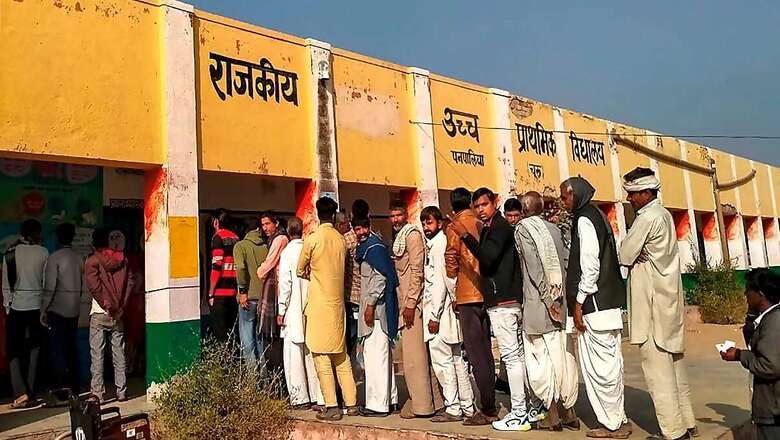
views
The government has formed a committee over One Nation, One Poll, which will be headed by former President Ram Nath Kovind. The committee’s objective is to investigate the feasibility of implementing the concept of ‘one nation, one election’.
The committee will engage with state stakeholders, but it doesn’t necessarily indicate that the bill will be introduced during this session. The committee plans to seek both legal and political opinions, and it is anticipated that two retired judges will also be part of the committee. This is because the proposed changes involve a constitutional amendment.
The Opposition party, however, slammed the move, calling it “impractical” and bit to end “opposition parties”.
Over the years, Prime Minister Narendra Modi has pushed strongly for the idea of simultaneous Lok Sabha and state assembly polls, and the decision to task Kovind to look into it underscores the government’s seriousness as a host of elections approach.
The other members, who are likely to be a part of the panel, are cabinet Secretary, ex-CJI, ex-ECI, retired judges, constitution experts and political leaders.
Assembly polls are due in five states in November-December and they will be followed by the Lok Sabha elections in May-June next year.
However, the recent moves by the government have thrown open the possibility of advancing the general elections and some state polls, which are scheduled after and with the Lok Sabha contest.
How Elections Happen Now & What May Happen
Currently, state elections and General or Lok Sabha (Parliamentary) elections are conducted as separate events. Every state holds its elections every five years, as does the Lok Sabha, the Lower House of Parliament. Each state follows its own electoral cycle. However, if the ‘one nation, one election’ proposal becomes law, all state elections would synchronize with the Lok Sabha polls, potentially taking place on the same day.
Should this proposal be introduced during a special session of Parliament, it would necessitate a Constitutional amendment. This amendment would require approval from 67% of Lok Sabha members, 67% of Rajya Sabha members, and 50% of state legislatures.
PM’s Idea of One Nation, One Poll
Since coming to power in 2014, Prime Minister Narendra Modi has been a strong votary for the idea of simultaneous polls, which include those at local bodies, citing financial burden caused by almost continuous election cycle and jolt to development work during the polling period.
Kovind too had echoed Modi’s view and expressed his support to the idea after becoming President in 2017.
Addressing Parliament, he had said in 2018, “Frequent elections not only impose a huge burden on human resources but also impede the development process due to the promulgation of the model code of conduct.” Like Modi, he had called for a sustained debate and expressed hope that all political parties arrive at a consensus on this issue.
With the Modi government approaching end of its second term, there is a view in its top echelon that it can no longer let the issue drag on and needs to move decisively to underscore its purposefulness after debating on the topic for years.
Polls Due in Five States
With the ruling BJP under Modi always animated by grander themes and big ticket ideas to rally popular support, the issue will also suit the party politically and catch the opposition off-guard, leaders in the party believe.
Assembly polls are due in five states- Mizoram, Madhya Pradesh, Chhattisgarh, Telangana and Rajasthan- in November-December and they are scheduled to be followed by the Lok Sabha elections in May-June next year.
However, the recent moves by the government have thrown open the possibility of advancing the general elections and some state polls, which are scheduled after and with the Lok Sabha contest.
Andhra Pradesh, Odisha, Sikkim and Arunachal Pradesh assemblies are scheduled to go to the polls with the Lok Sabha elections.
The BJP enjoys good relations with Andhra Pradesh Chief Minister Jagan Mohan Reddy and his Odisha counterpart Naveen Patnaik even though they are not formally part of its alliance.
The BJP is in power in Arunachal while Sikkim is ruled by an ally. Maharashtra and Haryana, two states where the BJP is in power with allies, and JMM-Congress-ruled Jharkhand are slated to go for polls after the Lok Sabha contest.
Special Session of Parliament
Parliamentary Affairs Minister Pralhad Joshi has announced that the government has chosen to convene a Special Session of Parliament scheduled from September 18 to 22, comprising five sittings.
“Special Session of Parliament (13th Session of 17th Lok Sabha and 261st Session of Rajya Sabha) is being called from 18th to 22nd September having 5 sittings. Amid Amrit Kaal looking forward to having fruitful discussions and debate in Parliament,” Joshi said on ‘X’ (formerly Twitter).
The declaration about the unexpected Special Session has caught political circles off guard, especially as parties are preparing for upcoming assembly elections in five states later this year. Traditionally, the winter session of Parliament commences in the last week of November.
The Monsoon Session of Parliament which commenced on July 20 was adjourned sine die on August 11 with 17 sittings spread over a period of 23 days.













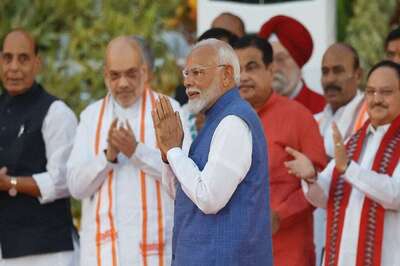
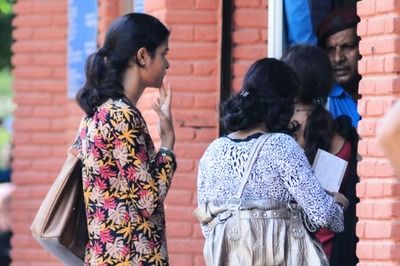
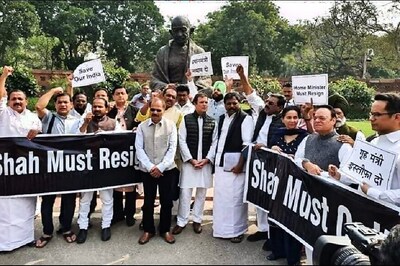
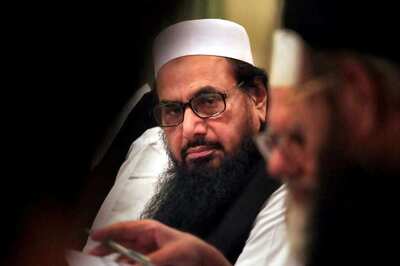
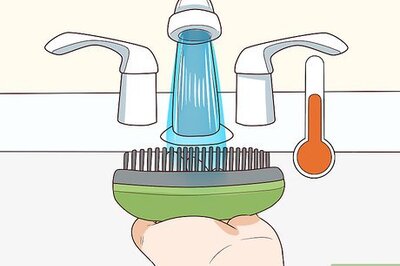
Comments
0 comment